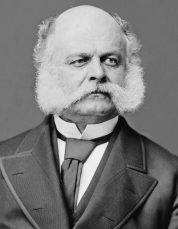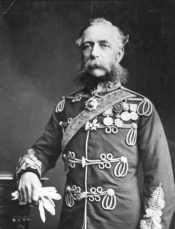In the English language, there are dozens of eponyms. We use eponyms every day, even though we may not know what they are! So, before going through some of them, let’s first clarify what an eponym is. An eponym is a person, a trademark or a brand after which a place, an era, a discovery or a thing is named. You might already know that watt, the unit of power, was named after its Scottish inventor, James Watt and that sandwich comes from the tireless card games player John Montagu, Earl of Sandwich, but did you know that boycott, algorithm, mesmerize, sideburns, cardigan, chauvinism, wellingtons, and Oscar are all eponyms? Let’s discover their origins!
Boycott

Meaning: To refuse to buy a product, deal with an organization or participate in an action as an act of protest. The word boycott entered the English language in the 19th century, at the time of the Irish Land War. Captain Charles Boycott was a landlord agent who refused to reduce land rents as requested by the farmers working on the estate Boycott was responsible for. Instead of taking violent action against Boycott, the farmers simply decided to oppose him by not working for him. The protests continued until he was forced to flee to England with his family.
Algorithm
Meaning: a set of rules that must be followed in calculations and problem-solving operations. The word algorithm comes from Abu Abdullah Muhammad ibn Musa Al-Khwarizmi, a Persian mathematician and astronomer who lived in the 9th century and is considered as one of the fathers of algebra. The algorithm derives from the Latin transliteration of Al-Khwarizmi.
Mesmerize
Meaning: to hypnotize, to capture someone’s attention. This verb derives from Franz Friedrich Anton Mesmer, a German physician born in 1743. He believed that people and objects are pulled together by a strong magnetic force. His theories are at the basis of modern hypnosis.
Sideburns

Meaning: hair growing down the sides of a man’s face. Sideburns, originally burnsides, were named after American Civil War General Ambrose Burnside. The General became famous for his facial hairstyle: mutton-chop whiskers connecting with a mustache and a clean, shaven chin!
Cardigan

Meaning: knitted jumper that opens at the front. The cardigan was named after James Thomas Brudenell, 7th Earl of Cardigan. The Earl served as General in the Crimean War and is said to have worn such a jumper while leading the Charge of the Light Brigade at Balaclava (1854).
Chauvinism
Meaning: excessive patriotism. This noun derives from Nicholas Chauvin, a solider in Napoleon’s army, who became famous for his absolute loyalty to the Emperor even after his defeat.
Wellingtons
Meaning: waterproof boots. The wellingtons are named after Arthur, 1st Duke of Wellington, famous for his victory at the Battle of Waterloo in 1815 and for being a fashion icon. The Duke of Wellington found that the boots used by the British Army were difficult to wear. He therefore asked his shoemaker to make him more comfortable ones. Thanks to his success in the battlefield and his fame, the boots soon took his name.
Oscar
Meaning: Academy of Motion Picture Arts and Sciences Award. When the Academy Librarian, Margaret Herrick, first saw the statuette she declared: “He reminds me of my Uncle Oscar!”.
Andrie Steliou
Latest posts by Andrie Steliou (see all)
- 8 Ways to Help Keep Your Child Focused and Engaged in Online Learning - October 19, 2022
- How to Improve Social Intelligence Skills? - May 10, 2022
- How to Improve Organizational Skills at Workplace? - May 6, 2022

